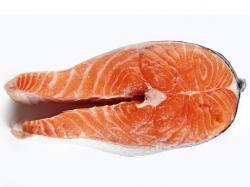Why Is Some Of The Best Salmon Bypassing US Consumers?
April 1, 2015 | 2 min to read

The saga surrounding the fish consumed worldwide is getting increasingly complicated–and criminal considering the recent investigation by AP reporters surrounding human rights violations of seafood industry workers in Southeast Asia.
Closer to home, consider Alaska’s $2 billion commercial fishing industry, considered the world’s most valuable wild salmon fishery which has been threatened by a proposed copper and gold mine in the headwaters of Bristol Bay southwest Alaska by developer Pebble Partnership. News of the mine got plenty of attention from consumers (65% of Alaskans polled in 2014 said they opposed it), environmentalists, fishing industry advocates, even chefs. The EPA also got in on the act, ruling against its development citing the disruption of the entry point to the massive swim for 40 million wild salmon before they head towards rivers and streams to spawn and die, as did President Obama who issued a memorandum that would protect the area from any future gas or oil drilling. Recently, the developer filed suit against the EPA and a growing push in Congress to block efforts to protect Bristol Bay also got traction—two developments that should leave the Bay’s fate hanging in legal and political limbo for quite some time or until the next election.
Bristol Bay is the source of over 50% of the world’s wild sockeye which is prized for its high-quality flavor and taste. Yet the fact remains that most Americans don’t eat it as it’s exported. In fact, 91% of the seafood Americans eat comes from abroad (and is often farmed) while as much of 1/3 of the seafood caught in the states gets exported. In other words, the good stuff is sent overseas.
To read the rest of the story, please go to: Forbes
